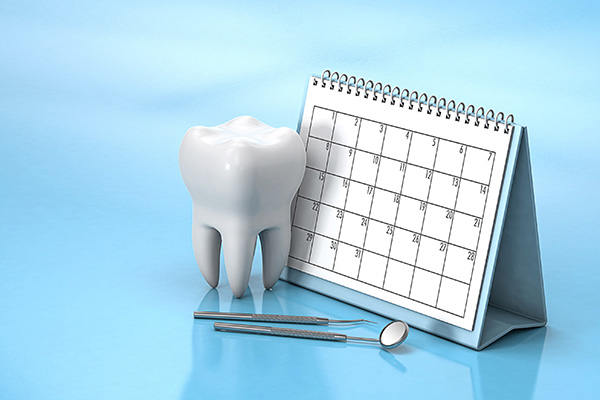3 Conditions a Family Dentist Treats

A family dentist treats patients of all ages but focuses on treating and maintaining the oral health of children and teenagers. Having a family dentist means that your entire family can see the same dentist and get to know them better. Often, the dental office can schedule appointments for everyone in the family in one visit, offering convenience and reducing the number of days you need to take off from work or school.
3 conditions a family dentist treats
Because they see patients from all age groups and in varying stages of oral health, a family dentist can handle a wide variety of issues with the teeth and gums. Here are three conditions that a family dentist commonly treats.
Gum disease
Gum disease, or periodontitis, is an infection that damages the soft tissues of the gums and can cause loose teeth and tooth loss. Symptoms of early-stage gum disease include swollen gums, gums that are prone to bleeding, bad breath, bright red gums, and gums that are tender to the touch. Although gum disease can often be prevented with proper oral hygiene, such as brushing your teeth at least twice per day, it is still one of the more common oral health conditions. As a result, it is one that family dentists are familiar with treating.
In order to diagnose you with gum disease, a family dentist may discuss your oral health habits with you to determine what risk factors you have, check your mouth for signs of plaque and bleeding, and take X-rays of your teeth and mouth to see if there is any bone loss occurring around the teeth. There are both non-surgical and surgical treatments for gum disease, with surgical procedures reserved for more advanced stages of the disease. Non-surgical remedies may include the use of antibiotics, root planing, or scaling. Surgical treatments may consist of flap surgery, bone grafting, or the application of proteins to stimulate tissue growth.
Cavities
Cavities are especially common in children and older adults, so family dentists are well-prepared to address them. Cavities are holes that develop on the surface of the teeth as a result of tooth decay. Three types of cavities include:
- Smooth surface, where the tooth enamel slowly dissolves
- Pit and fissure decay, where cavities form quickly on the chewing surfaces of the teeth
- Root decay, which is caused by receding gums exposing the root of the tooth to plaque
Cavities can be treated with fluoride, dental fillings, root canals, or tooth extraction. Your dentist can recommend the right option based on the patient's needs and the extent of the decay.
Tooth injuries
Tooth injuries can be caused by biting into hard food, playing sports, getting into a car accident, and many other activities. Family dentists can treat conditions involving chipped, broken, or lost teeth due to an injury. The dentist might reattach the broken tooth, attach a filling, or perform a root canal to fix the damage.
Other reasons to see a family dentist
Even if you or your children are not experiencing any current dental symptoms, it is still important to see a family dentist on a routine basis. Regular checkups and cleanings play an important role in maintaining overall oral health. Professional cleanings help remove tartar buildup, reducing the risks of tooth decay and gum disease. They can also help prevent staining, leading to a more beautiful smile.
Dentists conduct numerous important screenings at routine appointments that help them detect serious issues, often before symptoms arise. Visual examinations help dentists identify cavities, enamel loss, and gum recession. They also help them determine if there are any developing issues with bite or alignment. X-rays can reveal infections, tooth decay below the surface, and even signs of bone loss or cancer. Early detection allows for more treatment options and in many situations, a better overall outcome.
Dental anxiety is relatively common, especially in younger children. However, regular visits to the dentist's office can help patients of any age feel more comfortable and at ease. This allows them to become more familiar with the environment while establishing a good relationship with the staff at the office.
Conclusion
You can expect to have these three conditions and many others treated by a family dentist. If you experience a problem with your teeth or gums, do not hesitate to contact your dentist right away before the problem gets worse. Also, remember to prioritize routine appointments for better oral health.
Request an appointment here: https://cosmeticdentistdallastx.com or call Lalangas Family Dentistry at (972) 534-6008 for an appointment in our Dallas office.
Check out what others are saying about our dental services on Yelp: Family Dentist in Dallas, TX.
Related Posts
Seeing your family dentist for regular dental exams can maintain your oral health for many years. Bringing your family with you can extend this benefit to them. Understanding why you must set dental checkups will enable you to maintain a healthy smile for years. Here are the reasons to see your family dentist for regular…
A family dentist can help a house with family members of varying ages maintain healthy smiles, from young children to grandparents. However, our team understands that choosing the right dentist for your family's oral health needs is an important and sometimes overwhelming decision. Here are a few essential factors to consider when searching for a…
Wondering how a family dentist can help with dental anxiety? Read on to learn more. Millions of people all over the world struggle with dental anxiety. This prevalent problem poses a major barrier to receiving proper dental care. A family dentist can play a critical role in alleviating dental anxiety. When you visit your family…
Family dentistry is about more than just treating teeth—it is about fostering lifelong oral health habits and building trust for families of all ages. From toddlers just starting to learn about dental care to seniors requiring more advanced treatments, family dentistry provides a foundation of care that evolves alongside each patient. By choosing a family…


